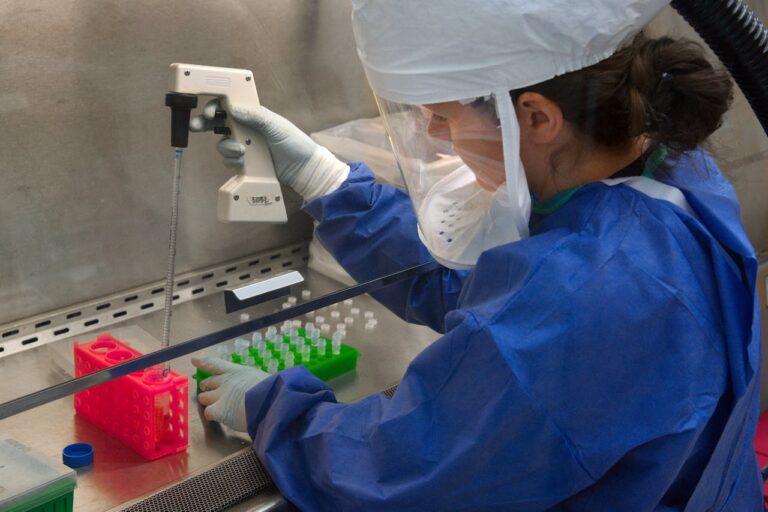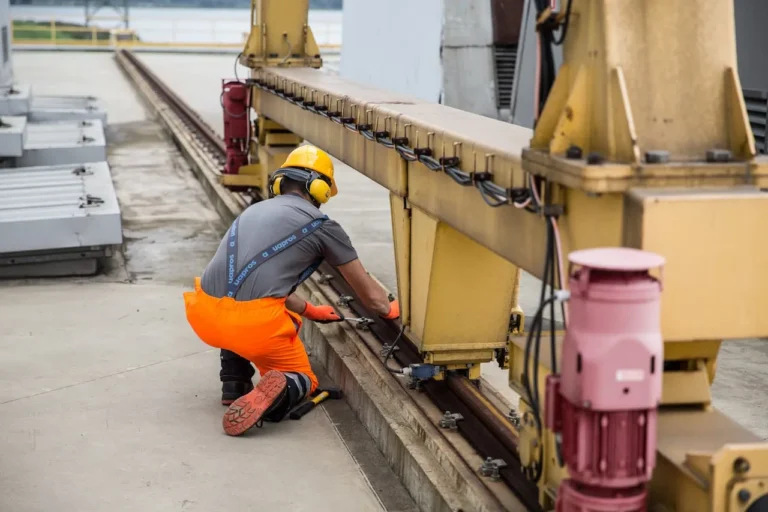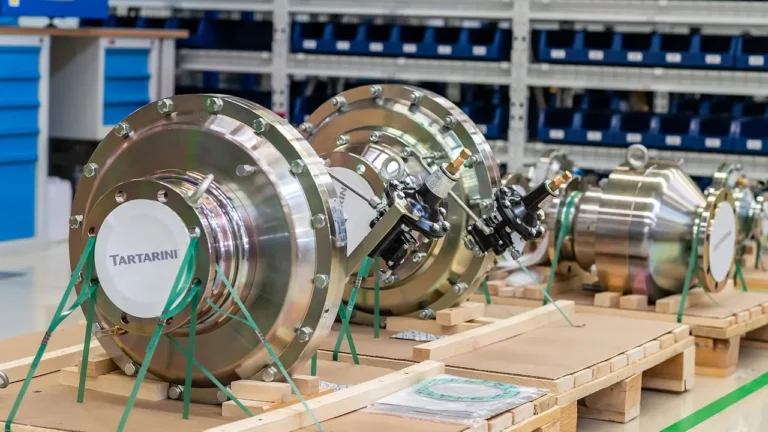
Hyundai Motor Group and Pyeongtaek City Unite to Pioneer Carbon-Neutral Hydrogen Port Development
Hyundai Motor Group (the Group) has announced a landmark collaboration with Pyeongtaek City and several strategic partners to spearhead the creation of Korea’s first carbon-neutral hydrogen port. Through a comprehensive Memorandum of Understanding (MoU), the initiative aims to establish a national model for port decarbonization, aligning with South Korea’s broader carbon neutrality goals and advancing the country’s leadership in clean hydrogen energy applications.
Building a Blueprint for Sustainable Port Operations
Under this ambitious agreement, Hyundai Motor Group will work closely with Pyeongtaek City to design and implement large-scale hydrogen-powered port operations. Hyundai Motor Company will take the lead in developing the Group’s overarching hydrogen-related business strategies, while Kia Corporation and Hyundai Glovis Co. will take on operational responsibilities by introducing and managing hydrogen fuel cell power generators within their respective facilities at Pyeongtaek Port.
This strategic collaboration aims to create the foundational infrastructure necessary for expanding hydrogen utilization across all port activities—from logistics and cargo handling to transportation and facility management. By doing so, the partners hope to set a global example for integrating renewable energy and hydrogen-based systems into one of the world’s most energy-intensive industries: maritime logistics.
Establishing a Hydrogen-Based Energy Infrastructure
A major highlight of the agreement involves leveraging the nearby hydrogen production complex located close to Pyeongtaek Port. Through this integration, the project will establish a robust hydrogen-powered energy system connected via a 15-kilometer pipeline network. This infrastructure will ensure a consistent and efficient hydrogen supply to fuel cell generators, guaranteeing stable energy output and reducing dependency on fossil fuels.
In parallel, Hyundai Motor Group and its partners plan to launch joint research, technology development, and demonstration projects focused on optimizing fuel cell power generation systems at both Kia and Hyundai Glovis facilities. These efforts will allow the partners to evaluate operational performance, improve scalability, and refine hydrogen technology applications for industrial and logistics settings.
Creating a Comprehensive Hydrogen Energy Framework
Hyundai Motor Group and Pyeongtaek City envision transforming these initiatives into a holistic and sustainable energy framework tailored for port operations. The framework will integrate multiple hydrogen solutions, including fuel cell-based power generation systems, hydrogen refueling infrastructure, and hydrogen mobility fleets.
In addition to ensuring stable energy supply, the project will promote the gradual introduction of hydrogen-powered vehicles and port machinery. This includes hydrogen trucks, forklifts, and yard tractors, all of which will contribute to reducing carbon emissions throughout the logistics and transport chains. Hydrogen refueling stations will also be installed across strategic locations within the port to support this growing fleet and ensure seamless energy access for port operators.
Ken Ramirez, Head of Global Energy & Hydrogen Business Division at Hyundai Motor Group, emphasized the significance of the collaboration, stating:
“Hyundai is honored to jointly drive this important collaboration as a public-private partnership aimed at delivering real-world hydrogen applications to achieve the goals of both the Ministry of Oceans and Fisheries’ ‘Hydrogen Port’ policy and the Ministry of Land, Infrastructure and Transport’s ‘Hydrogen City’ policy. It represents the first domestic initiative to establish a broad hydrogen ecosystem for port decarbonization, leveraging Pyeongtaek Port’s advanced infrastructure.”
Ramirez’s remarks underscore the alignment of this project with South Korea’s national sustainability strategies, particularly the government’s “Hydrogen Port” and “Hydrogen City” policies, which aim to integrate hydrogen energy solutions into industrial, urban, and transportation systems.
Long-Term Vision: Hydrogen and Ammonia Bunkering for Zero-Emission Shipping
Looking ahead, the collaboration between Hyundai Motor Group and Pyeongtaek City will expand into maritime decarbonization by developing hydrogen and ammonia bunkering facilities. These facilities will serve as fueling hubs for next-generation zero-emission vessels, supporting South Korea’s transition toward cleaner maritime transport.
The project also plans to explore the adoption of Alternative Maritime Power (AMP) systems, which enable berthed ships to draw power directly from shore-based electrical grids rather than relying on their engines. This approach significantly reduces emissions of greenhouse gases and pollutants from idling ships, further strengthening the port’s carbon-neutral ambitions.
By combining hydrogen-based power generation with advanced bunkering infrastructure, the partners aim to position Pyeongtaek Port as a global leader in green port innovation—a model that other ports around the world could replicate.
Expanding the Hydrogen Supply Chain and Ecosystem
Another crucial objective of the initiative is to establish a resilient and scalable green hydrogen supply chain. This will involve the import of ammonia—a key hydrogen carrier—and its subsequent conversion into hydrogen to support port operations. Through these processes, the partnership seeks to enhance the stability, efficiency, and cost-effectiveness of hydrogen-based energy supply systems.
Collaboration with the Gyeonggi Pyeongtaek Port Corporation (GPPC) and the Pyeongtaek Regional Office of Oceans and Fisheries will also be instrumental in achieving these goals. Together, the partners plan to develop business expansion strategies, address regulatory challenges, and accelerate infrastructure development to create a sustainable hydrogen port ecosystem.
Real-World Hydrogen Applications Already Underway
Hyundai Motor Group has already taken tangible steps toward hydrogen-powered logistics. Since November 2024, Hyundai Motor has been operating Korea’s first hydrogen-powered auto transport truck, running between its Asan manufacturing plant and Pyeongtaek Port. This pilot project marks a significant milestone in demonstrating the feasibility of hydrogen-based freight transport, highlighting the Group’s commitment to decarbonizing the logistics sector and expanding hydrogen mobility solutions.
The success of this pilot strengthens Hyundai’s position as an industry leader in hydrogen mobility, paving the way for broader adoption of fuel cell technologies in both heavy-duty transportation and port logistics.
Leveraging HTWO: Hyundai’s Global Hydrogen Brand
Central to Hyundai Motor Group’s hydrogen ambitions is HTWO, the Group’s dedicated hydrogen business platform and brand. Through HTWO, Hyundai aims to integrate hydrogen technology across its value chain—from production and storage to distribution and utilization.
By aligning HTWO’s capabilities with Pyeongtaek City’s industrial infrastructure, Hyundai Motor Group intends to accelerate the deployment of scalable hydrogen solutions that can be applied not only in ports but also across broader sectors such as mobility, power generation, and construction.
This integrated approach underscores Hyundai’s commitment to a hydrogen economy, where clean energy drives industrial growth, enhances sustainability, and fosters innovation. The Group’s efforts through HTWO also highlight its strategy to collaborate with global and local partners, encouraging shared investment and technological development to strengthen the hydrogen ecosystem worldwide.
Accelerating the Transition to a Sustainable Future
Through this partnership, Hyundai Motor Group and Pyeongtaek City are setting the stage for a new era in sustainable port management and energy use. By combining public and private expertise, the initiative not only supports South Korea’s carbon neutrality targets but also demonstrates how large-scale hydrogen projects can deliver measurable benefits for industries and communities alike.
The initiative’s comprehensive approach—from clean energy production and storage to hydrogen mobility and maritime bunkering—reflects a holistic vision for sustainability. It establishes Pyeongtaek as a testbed for innovation, where advanced hydrogen technologies will drive both environmental and economic progress.
As Hyundai Motor Group continues to expand its hydrogen initiatives through HTWO and global collaborations, projects like the Pyeongtaek hydrogen port will play a pivotal role in realizing a future powered by clean, renewable, and carbon-free energy.




